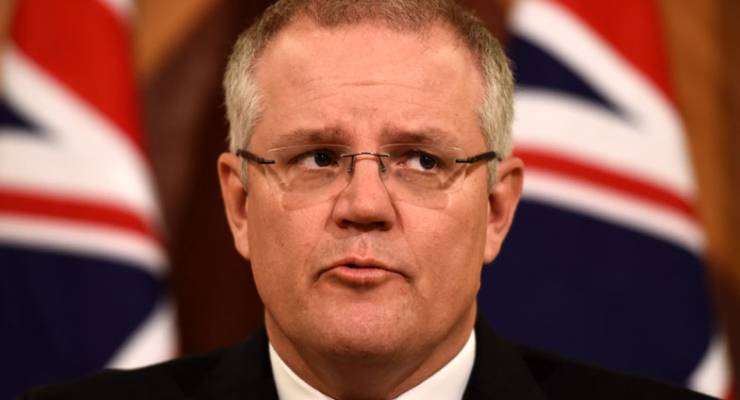
This morning Wage Price Index data from the Australian Bureau of Statistics showed continued “subdued” — almost comatose — wage growth. And it’s not good news for Malcolm Turnbull and Scott Morrison.
The WPI rose 0.5% in the June quarter and 2.1% in the year to June on a seasonally adjusted basis — the same result as in March. The overall figure of 2.1% was the same in trend and original terms.
That means wages growth for 2015-16 undershot the budget forecast from May of 2.25% growth. The budget forecasts that growth will accelerate this financial year to 2.5% — an estimate that now looks decidedly optimistic given continued low inflation.
That will feed through to the revenue side of the budget, with lower tax returns not merely from workers but from businesses will rely on consumer spending. It’s the same story we’ve been seeing now for a couple of years, both in terms of lack of strong wages growth (wages are still growing in real terms, however, due to very low inflation) and on the revenue side of the budget.
But the bad news doesn’t end there for Morrison in his role as chief taxman. BHP delivered a painful fiscal blow this week. Five years ago BHP paid income tax of more than US$7.3 billion. In 2014-15, that was down almost 50% to a still-solid US$3.577 billion. But in 2015-16, with big write-downs in the US shale gas business, the cost of the Samarco mine disaster and the impact of restructuring and other costs in other parts of the business, the tax bill was down to just US$876 million.
Any thoughts on where to find US$2.7 billion in budget savings? The weaker Australian dollar will ease a little of the fiscal pain, but not anywhere near enough to offset the massive tax revenue fall. And the company’s dividend been slashed to 30 US cents a share, from US$1.24 a share, which means more losses for the ATO and the federal budget. Oh, and there are the potential capital losses some shareholders might use for the 2015-16 year from the 30% plunge in BHP shares from US$26.65 on July 1, 2015, to US$18.65 on June 30 this year.
As for next year, BHP isn’t too confident. “While commodity prices are expected to remain low and volatile in the short to medium term, we are confident in the long-term outlook for our commodities, particularly oil and copper.” “Long term” doesn’t help the budget much. And BHP’s crystal ball on the Chinese economy is similarly dark. “The rate of growth in the Chinese economy appears to have stabilised and we expect that government policy will remain supportive, in line with the authorities’ GDP growth target of between 6.5 and 7 per cent for the 2016 calendar year. Over the medium term, China is expected to grow more slowly.” In other words, the halcyon days of five years ago and even 2014-15 are history, so far as earnings and tax revenues are concerned.
If revenue does indeed fall short of forecasts for Morrison, he will be faced with the dilemma that plagued Wayne Swan, Chris Bowen (briefly) and Joe Hockey before him: does he try to chase falling revenue by cutting spending, or is the economy too fragile to tolerate less stimulus — even with the Reserve Bank taking interest rates to yet another historic low? And in any event, will the Senate pass any spending cuts even if he goes down that path?








A competent treasurer might come up with a plan. A fundamentalist delusional like the present incumbent along with his farcical PM may as well pull the plug and go and sit on the beach.
Jobs and growth; growth and jobs, ….yeah. It’s the LNP saviours of our economy.
I don’t know why so many people think Turnbull is little more than an MT vessel – he was able to pass this poisoned phallus off to his closest rival?
“BHP isn’t too confident. “While commodity prices are expected to remain low and volatile in the short to medium term, we are confident in the long-term ” haven’t they used that line before, in fact don’t they trot it out every time. BHP’s prognostications are not particularly sound, I would think.
As for Morrison, well a skilled Treasurer would be struggling mightily. He is so far out of his depth he way well end up in China.
Meanwhile they continue to dig up our minerals in ever increasing quantities whilst providing less revenue and jobs..wtf..